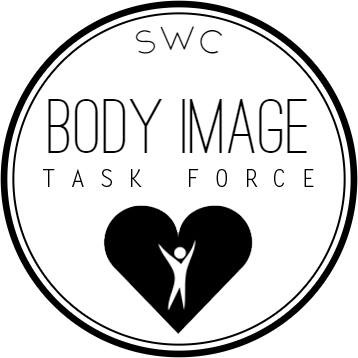Speak Your Mind: Body Image and Mental Health Panel

Image courtesy of UCLA’s Body Image Task Force
“It’s either perfection or destruction.”
“A way for me to be in control.”
“I didn’t want help, I just wanted to be skinny.”
“The mirror was my biggest enemy.”
“I couldn’t breathe.”
Anyone who struggles with disordered eating or body image issues is no stranger to these overwhelmingly negative and self-deprecating thoughts. Today, illnesses like anorexia and bulimia are on the rise more than ever, especially in the context of social media. UCLA’s Body Image Task Force has taken on the responsibility of educating the university’s community about all aspects of body image issues, from battling eating disorders to maintaining healthy workouts to decluttering social media feeds.
This year, the group presented “I Love My Body Week” here at UCLA, featuring five days of events corresponding to different problems related to body image. One of these events was a panel discussion called “Speak Your Mind: Body Image and Mental Health.” The Body Image Task Force collaborated with the UCLA chapter of Active Minds in order to initiate a productive dialogue surrounding individual struggles with body issues and how to overcome them.
The stories shared within the walls of the Rieber Fireside Lounge that night were desperately touching, heartbreaking and uplifting all at once. As the environment where the panelists shared their stories was a very intimate and safe space, the individual narratives will not be published in this article so as to preserve privacy.
Each panelists anecdote struck a different chord with the audience, ranging from tales of suicidal thoughts and tendencies to internal conflicts about body weight, food, and exercise. The panel was moderated by a university dietician, and the panelists were all UCLA students, varying in grade from first-year to fourth-year. As they went down the line and shared their stories, they were met with heartfelt applause from the audience and more than a few empathetic nods and smiles.
In addition to the personal detailing’s of body image struggles shared by the panelists, the moderator posed thoughtful questions about the role of social media in today’s body perceptions. She also offered advice on how to approach a friend about their eating disorder, how to give compliments that focus on attributes other than physical characteristics, and how to reflect positively on yourself to maintain your own mental health.
Her advice on approaching friends was simple but effective: to the best of your abilities, evaluate the appropriate situation in which to approach the person. She recommended against an intervention with multiple people, as that would cause the friend to feel attacked. She also suggested posing the conversation outside, while on a walk or a hike, as the environment feels less suffocating and allows for more flexibility than a closed dorm room. One of the most crucial things she highlighted was to expect the friend to deny the problem, and be prepared to kindly yet firmly offer support.
The topic of introspection was a common one across the table, especially conceptualizing that our bodily self-perceptions vary wildly from one day to the next. Almost all of the panelists mentioned in their narratives that they still have bad days sometimes, and a necessary part of positive body image is accepting that no one is entirely happy with their body all the time. It’s important to remember that everyone’s journey with body image is always changing, and never truly reaches an endpoint.
By putting on this event, Active Minds and the Body Image Task Force were sharing a vital message: in order for our society’s undeniable problems with eating disorders and body image to get better, there has to be discussion. There has to be dialogue, not just in the sense of acknowledging these obstacles, but in how we, as active members of our community, can heal these societal illnesses through creating an environment conducive for people feeling comfortable with their bodies. Negative body image has become such a standard in our culture that it will take innumerable steps towards achieving body positivity on a widespread level. Steps towards this change were taken by the panel event. By sharing individual stories, the panelists illuminated the fact that while no two stories about body image are the same, no one is alone in their struggle against the illness.
“The only person who could heal myself was me.”
“Perfection is loving yourself for who you are.”
“I am a recovered anorexic.”
“Your struggle is valid.”
“Everybody learns from their mistakes.”
“Don’t be afraid to be bold.”
“You are not alone.”
*If you feel that you or someone you know is suffering from an eating disorder or other mental illness, please take advantage of the resources below:
National Suicide Hotline: 1-800-273-8255




